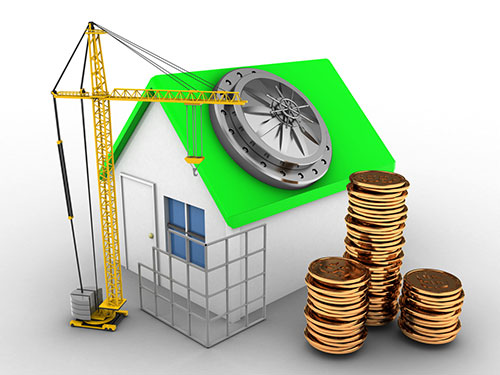As any builder knows, effective cash flow management is a vital part of any residential construction project. Ensure your business stays afloat throughout the year with these cash flow best practices.
Spread out your costs.
Unless you’re trying to take advantage of a huge discount, you should use financing to purchase your supplies and materials. While this will come with interest, the payments will be spread out, leaving you more available cash to operate your business.
Project your future cash flow.
It can be difficult to estimate future cash flow in construction, thanks to change orders and the varying degree of projects. By leveraging cash flow management software, however, construction companies can get a general idea of what expenses and income they can expect in the future. They can then use this information to properly plan for likely events to avoid payment and payroll problems.
Shop around.
Since suppliers are eager to acquire business from construction companies, they are more likely to give you a good deal if you let them know you are shopping around for the best offer.
Handle change orders quickly.
Change orders are a fact of life in construction, where projects often require more money, resources and/or time than originally expected. It’s important to process change orders right away, instead of waiting until your project is finished.
Take a smart approach to your payroll.
Construction companies almost always pay employees on a bi-weekly basis. That being said, you can improve cash flow by hiring subcontractors, which often are paid every four weeks. You should only do this in special situations, however, since you are likely to get better results from full-time workers.
Automate invoicing.
All of your invoices should be automated and sent as quickly as possible. You can also maximize cash flow potential by sending out your invoices ahead of time. If you aren’t accepting electronic payments, modernize your invoicing process to make it easier for clients to settle debts.
Train your project manager.
Since the vast majority of construction costs come from work in progress, cash flow performance depends on your project manager. Make sure your manager is properly trained in effective cash flow management. You can also offer incentives to promote better cash flow performance.
Bill accurately.
Many project managers try to increase cash flow by sending invoices that do not accurately reflect the amount of work completed to date. While this type of overbilling can help increase cash flow in the present, it ultimately results in reduced cash flow once the project is finished. On the other hand, if you under-bill a project, you could face cash flow issues in the near term. Make sure your managers bill according to how much work has actually been completed on a project, so you can have a clear idea of where you stand financially.
Set collection goals.
It usually takes two to three months for clients to pay invoices in the construction industry. See if you can set a realistic goal of acquiring payments no later than 50 days after a project is completed. You can do this by writing clear terms in your contract, offering payment incentives and sending out invoices immediately. You should also check credit reports before you make any deals.
Protect your business and add value to your homes with 2-10 Structural Warranties for Home Builders.








